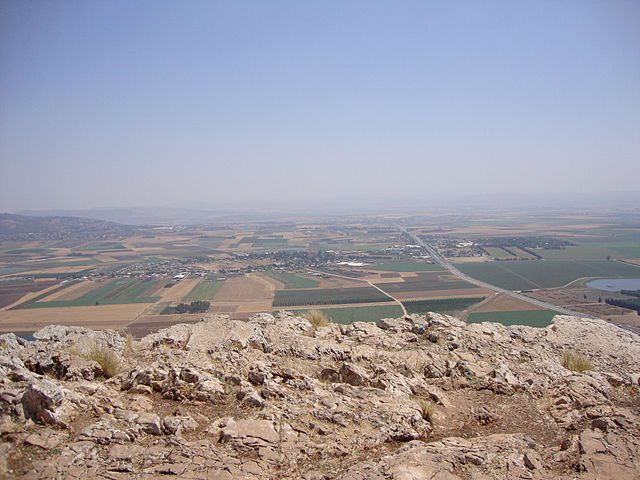
The apologist necessarily has to sometimes (reluctantly, unhappily, in a small number of instances) enter into what many call “negative” or “polemical” territory because we say (just as Jesus and Paul did) that some things or ideas are wrong, and people don’t like that in our nicey-nicey, relativistic, supposedly so “tolerant” (but in reality quite the opposite) age.
We condemn errors and show why they are errors out of a motivation of love, because falsehood and sin never helped anyone along on the road to heaven and sanctity. We must do so gently and with love, but it still ruffles feathers in any event.
Thus, what those of a certain prevalent outlook view as a “negative” undertaking is quite a positive (though at the time, unpleasant and not much fun) endeavor, motivated by love and the desire to see Catholics be happy, fulfilled, and joyous in their walk with Christ in the Catholic Church.
Error and sin (in doctrine and behavior, respectively) must be opposed by anyone who loves God and the Church and the pope and the unity that God intends for us all to have. St. Paul commanded us to oppose it.
People (including myself) love that old saying “You catch more bees with honey rather than with vinegar.” No doubt, this is true. It’s human nature. But as a full-time apologist I can’t only do all the nicey nicey stuff that no one would object to. That’s what I’m talking about here: not saying that apologetics has to usually cause acrimony, etc.
It would be wonderful to always be “positive” all the time (I hate friction and conflict as much as anyone), but it’s just not possible in this line of work. I have to also say, “x [idea / doctrine] is wrong” and explain why (that is the apologetics), and say “[well-known person] y is wrong” and show how and why they are in error. That’s part of the “deal.”
Jesus and Paul did the same thing. Would we say to them, “just do all the warm fuzzy ‘honey’ stuff and forget about rebuking the Pharisees and turning over the tables of the moneychangers and don’t say we should separate from the divisive and the contentious.”?
St. Paul even named names of those who opposed him and who fought against the truth that he was preaching. The names are in the Bible: for all posterity to observe. How “negative” is that? But for all we know, some of those men may have been saved in the end.
If we made this sort of complaint to Jesus and St. Paul, they would have done all those things anyway, because it was part of their mission. Yet this is frequently expressed to apologists. It’s part of my mission, too, to call a spade a spade and rebuke wrong and harmful behaviors that lead to schism and bad relations within the Church, and to oppose error and show why it is error, and to demonstrate that the Catholic Church offers a true alternative that is far superior.
Some toes get stepped on and feathers ruffled, in so doing; I can’t help that. It’s the nature of the “beast.” We have to proclaim truth as we see it, according to the teachings of Holy Mother Church, the Bible, and apostolic tradition. That necessarily includes error, and thus we are directly involved in “vinegar” activities.
I would love for it to be otherwise, but it’s my duty to proclaim and defend truth, and that will never be solely a “warm fuzzy” undertaking, no matter how gently and loving it is done by the apologist. It is for those who agree with whatever is being defended, but for those who disagree it is often contentious and sometimes ugly, once they start fighting back against the truths being proclaimed.
It’s part of the apologist’s cross to bear, and we bear it joyfully, with full consent, knowing that it is inevitable. We not only have to be in the middle of many “messy” controversies (and I absolutely detest those, believe me), but also get accused of being contentious ourselves and no different from those whom we oppose, in the very act of opposing the contentiousness and error.
That’s another cross I willingly bear as an apologist, if by that, it means that more people will hear the gospel and the message of the fullness of Christianity to be found in Catholicism. I’ll apply that suffering to the souls I’m trying to reach with the message. It’s all good in the end. God’s providence reigns supreme. Those aspects of my work I don’t enjoy at all, but I still love the work of an apologist overall and wouldn’t trade my life for anything.
We are all most content and fulfilled and joyous in that life that God has assigned to us, by virtue of calling and vocation. St. Paul taught that. Whatever your vocation is, dear reader, I urge you to fulfill it to the fullest.
***
[the rest below was originally in the combox]
When Jesus rebuked the Pharisees, that was a”vinegar” moment. When St. Paul said we should separate from the contentious folks and named names like Alexander the Coppersmith and Hymenaeus, that was a vinegar moment. Jesus said: “Woe to you, when all men speak well of you, for so their fathers did to the false prophets” (Lk 6:26).
I’m all for “honey”; try my best to apply it, and I think I do fairly well. But I don’t refuse to do something that needs to be done or said because it is vinegary. For anyone to claim that it is possible to always avoid that is quite naive, in my opinion.
All apologists have made many mistakes, of course. It doesn’t follow, however, that all instances of conflict are our fault. Sometimes it is the nature of the beast. We proclaim something that isn’t popular and get an avalanche of insults dumped on our head. Why were all the prophets killed, for heaven’s sake? To say that every time there is conflict, it’s because we screwed up, and never because telling the truth caused friction, is simplistic.
I’m all for honey (the more the merrier). But we can’t avoid all conflict as apologists. Jesus was perfect and He encountered plenty of opposition. He was accused of being demon-possessed, being mad, and was eventually murdered. Thus, we can’t say it was because He failed in His approach: didn’t use enough “honey.”
I’m criticizing the view, prevalent in our society, that almost makes “niceness” an idol, as if there is never unpleasantness when Christianity is proclaimed. It’s being nice to a fault: refusing to also be confrontational against error where necessary. We are to imitate both Jesus and Paul (Paul said so many times). That includes everything they did. Sometimes they did the more “negative” (so-called) things.
We can avoid it if we simply write articles and don’t directly interact with those in opposing camps. But the more one does the latter, it is inevitable that conflict and insults will come, just as with Jesus and Paul. Paul was stoned several times, run out of town; he was subject to all sorts of persecution.
Now how is it that if we are truly following his example, as the greatest evangelist of all time, that we don’t encounter serious opposition? Its perfectly to be expected. Jesus told His disciples matter-of-factly that they would be opposed, and when that happened, to “shake the dust off of your feet.”
It’s impossible, in other words, to follow the biblical model, and Jesus and Paul, and not encounter significant opposition, that is not merely due to our own shortcomings. Other times, it is our fault because we screwed up. I just apologized last week to two people, for excessive language. I screwed up. But I wound up on cordial terms with both men.
All apologists who have made a significant impact have been attacked. I see Scott Hahn regularly attacked, and have defended him several times myself. Michael Voris went after Keating and Staples and Akin and Al Kresta and others, implying that they put money above the proclamation of truth and were compromised; wouldn’t speak out against the problems in the Church. I defended them in person: trying to reason with Voris about it in his own office. It was perfectly cordial. We didn’t end with a fistfight. :-) I like the guy, personally. He’s very charming. But I don’t always like what he says in his videos.
James White the anti-Catholic regularly slanders any apologist who comes along his path, including Pat Madrid: whom I think is the “gentlest” of all of us. It’s all part of it. Because I have directly confronted these anti-Catholics, and atheists, and radical Catholic reactionaries, I get called all sorts of names and have all kinds of things said about me. I relish a good debate and dialogue, but I do not ever relish conflict. I have to be involved in it at times, for the sake of my work, and souls.
I’m not disagreeing that the apologist should be nice and gentle. Of course they should. I’ve never said otherwise, and I think I live that out, for the most part. I disagree with the extreme of the position, which holds that every time there is conflict, it’s because we’ve screwed-up. That just ain’t biblical and it ain’t reality.
I don’t relish “combat”; I relish truth and am willing to sometimes (reluctantly) engage in “combat” of a sort in order to further it, just as Jesus and Paul and St. Francis de Sales and any other evangelists / apologists were. Huge difference.
Nor does the Christian in general usually “relish” suffering. But if we know anything about the faith, we are willing to embrace it for a higher purpose. Doesn’t mean we “relish” it: unless we are on a very high plane of spirituality (that I am far far from).
Why all this hostility towards us evangelists and apologists and indeed, any Christian who tries to “walk the walk and talk the talk”? Is it solely because we’re jerks and obnoxious? Jesus never indicates as much. He connects the hatred of us directly with hatred of Him. It’s because of the message. It’s to be expected. Jesus warned about the opposite being the problem (spoken well of by all), not that we would be hated because were were loudmouthed jerks.
This has to be reckoned with. If we’re not encountering serious opposition, we need to examine ourselves seriously to figure out why that is: what we are doing wrong, so as to avoid the persecution that Jesus said would inevitably come.
We mustn’t fall into the error of thinking that we can never be firm or offer tough love or rebuke or condemn, because it isn’t “nice” etc. That’s simply not biblical or Catholic, as I have argued.
The biblical, apostolic way is to meet each situation with the response that is appropriate for it. It varies. When people resisted the truth, Jesus and the apostles were quite firm and (in today’s warped mentality) “intolerant.”
The problem, oftentimes, is that our particular temperaments line up in one way or the other, and we find it difficult to change according to circumstance. The gentle, soft-spoken person by nature will find it very difficult to be firm and offer a rebuke, whereas the blunt, outspoken personality finds it difficult to be habitually gentle (which should be the norm). The same problem occurs in families. The “nice” and gentle father finds it very hard to discipline children as he should; the wife given to nagging finds it difficult to cease doing that, etc.
Yet we see Jesus and Paul doing both things (God is both a loving merciful God and a judge) and they are our models. It’s quite clear in Scripture. We have to follow that model rather than the cultural model and the zeitgeist which are trendy and fashionable and oh-so-popular at any given time.
I totally oppose apologists (mostly amateurs, doing it on the side) who give us a bad name, with their triumphalist, chest-puffing nonsense. I have to deal with that baggage all the time, because people project it onto me, where it is not present. So we full-time, professional apologists detest the abuse of our field more than anyone else, since we have to live with the negative results of it almost daily.
We should never be abusive or insulting towards persons at all; only their positions (if manifestly false). But at times it is a very fine line, that we all struggle with in conflicts. The bare minimum is to at least acknowledge the ideal to strive after.
***
Related Reading:
Passionate Defense of Religious Truths: The Biblical Data [6-4-07]
Apologetics is Always a Difficult Spiritual Battle & Struggle [8-30-11]
Did Jesus, St. Paul, & the Prophets Use Sarcasm? Yes [8-16-17]
Some Thoughts on Evangelism and Being “Hated by All” [National Catholic Register, 7-20-18]
“Hate the Sin, Love the Sinner”: Biblical & Christlike? [8-21-18]
***
(originally 3-11-14 on Facebook)
Photo credit: Mark10:43 (5-25-10). Mt. Precipice near Nazareth, where the angry crowd attempted to throw Jesus off the cliff (Lk 4:24-30) [Wikimedia Commons / Creative Commons Attribution-Share Alike 3.0 Unported license]
***













